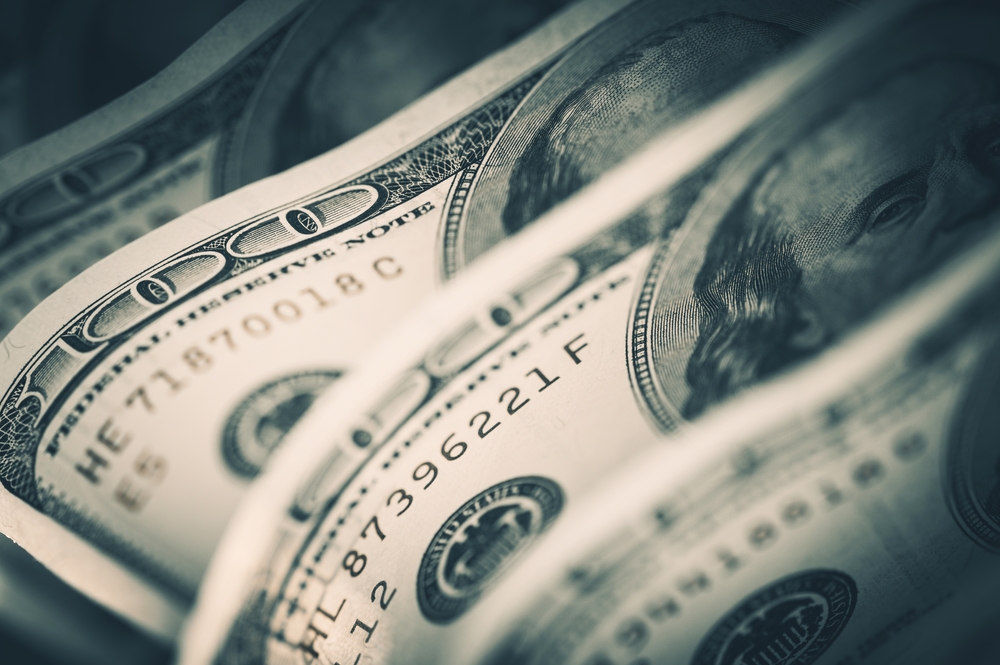bank
Dollar Will Plunge 35%, Lose Status As World Reserve Currency

The US dollar is on the verge of a 35% collapse. It could also lose its status as the world’s reserve currency. This is according to Stephen Roach, a senior fellow at Yale University and the former chairman of Morgan Stanley Asia.
The reason, according to Roach, is the slow decoupling of the US from its trade partners. Along with this, another reason is the rise of China. He says China’s structural reform goes away from a manufacturing economy. Instead, it comes into a more service-oriented economy with a stronger consumer base. This could mean the days of the US dollar being the world’s reserve currency are numbered.
Merely suggesting that the US losing its reserve currency status is enough to bring out the critics. In an opinion piece he wrote for Bloomberg, Roach addresses those critics.
“Scorn has long been heaped on those daring to question the supremacy of the U.S. dollar,” he starts. “As the world’s dominant reserve currency…the counter-arguments were strong and highly political, basically boiling down to the so-called TINA defense – that when it comes to the dollar, ‘there is no alternative.'”
The Role of The Dollar
Roach says that even those that believe there is no alternative to the US dollar when it comes to international trade. The same goes for when the financial markets are being shortsighted.
“Alas, the TINA argument doesn't stop there. The counter to my case for dollar weakness also rests on the reserve status of the U.S. currency as the linchpin of world financial markets. All trading nations, goes the argument, have to hold the dollar as the price for doing business in an increasingly integrated dollar-based world economy.
“Even so, the dollar’s share of official foreign-exchange reserves has declined from a little over 70% in 2000 to a little less than 60% today, according to the Bank for International Settlements. That downtrend could gather momentum in the years ahead, especially with the U.S. currently leading the charge in de-globalization and decoupling. With America’s share of reserves well in excess of its share in world GDP and trade, such a correction might well be inevitable in an increasingly fragmented, multi-polar world.”
The natural instinct for a weak dollar is to buy hard assets like gold. However, Roach says those markets are simply too small. They will not be able to absorb the tsunami of dollars looking for a new home.
“And although cryptocurrencies and gold should benefit from dollar weakness, these markets are too small to absorb major adjustments in world foreign-exchange markets where daily turnover runs around $6.6 trillion.”
Gold and cryptocurrencies are too small to benefit. Although, Roach says he does expect two currencies to strengthen as the dollar weakens: the Chinese renminbi and the euro.
Can It Be Replaced?
“On this basis, a forecast of a weaker dollar requires some combination of a strengthening in China’s renminbi and the euro…
“The China call is very contentious. From the trade war to the coronavirus war to the distinct possibility of a new Cold War, the negative case for China has never been stronger in the U.S. than it is today.”
“The call on the euro is also counterintuitive, especially for a broad consensus of congenital euro-skeptics like me… I now have to concede that reports of the euro’s imminent death have been greatly exaggerated. Time and again, especially over the past 10 years, Europe has risen to the occasion and avoided a catastrophic collapse of its seemingly dysfunctional currency union. From Mario Draghi’s 2012 promise to do “whatever it takes” to save the euro from a sovereign debt crisis to the recent Angela Merkel-Emmanuel Macron commitment to a Next Generation European Union Fund of 750 billion euros ($855 billion) to address the coronavirus crisis, the great European experiment has endured extraordinary adversity… there is unmistakable upside for the most unloved currency in the world.”
Roach ends his article by pointing out that no country has ever devalued its currency and enjoyed prolonged prosperity.
“If TINA is the dollar’s only hope, look out below… Yes, a weaker dollar would boost U.S. competitiveness, but only for a while. Notwithstanding the hubris of American exceptionalism, no leading nation has ever devalued its way to sustained prosperity.”
Up Next:
















Pingback: The Chinese Economy and Potential Collapse - Identity Dixie
Pingback: 07 The High Life is Good for YOU. – Jim's Blog